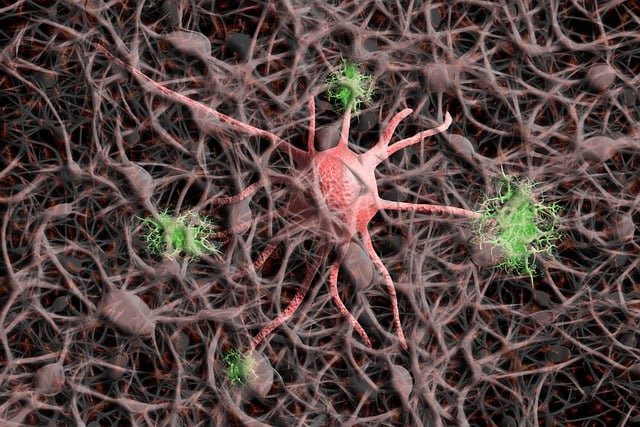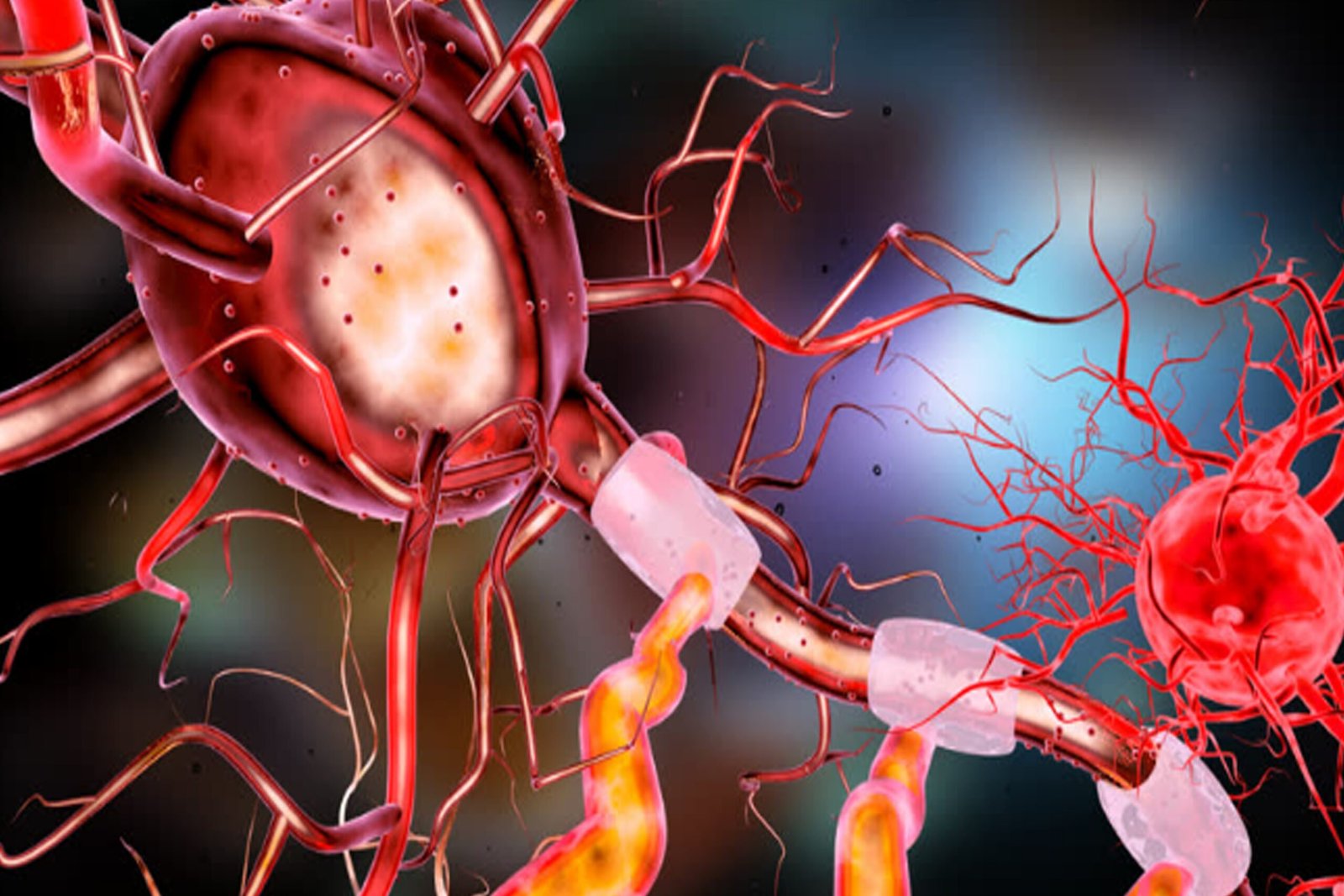What is Multiple Sclerosis?
- What is Multiple Sclerosis?
- Is Multiple Sclerosis a lifelong disease?
- Is Multiple Sclerosis a communicable disease?
- How common is Multiple Sclerosis?
- What is the cause of Multiple Sclerosis?
- Precipitating Factor
- Who is at risk of having Multiple Sclerosis?
- Symptoms and Stages of Multiple Sclerosis
- What are the symptoms seen in patients with Multiple Sclerosis?
- Stages of multiple Sclerosis
- Test and treatment for multiple sclerosis
- Multiple Sclerosis diagnoses and Who diagnoses Multiple Sclerosis?
- What is the treatment of Multiple Sclerosis?
- What is the recovery rate of patients of MS?
- How we can rehabilitate a person with Multiple Sclerosis?
- How we can spread awareness about Multiple Sclerosis?
- Is there any vaccine for Multiple Sclerosis?
Multiple sclerosis is a nerve disease that affects the brain and spinal cord, the main cause is unknown but the disease is thought to be the result of an autoimmune response or viral infection, which delays nerve message conduction and results in many physical and mental discomfort.

There are many questions that arise regarding Multiple sclerosis, including causes, precipitating factors, symptoms, stages, tests, treatment, recovery, prognosis, Rehabilitation, prevention, and awareness.
Is Multiple Sclerosis a lifelong disease?
Yes, Multiple sclerosis is a lifelong chronic disease, it is a progressive degenerative disease. It progresses with the passage of time according to the age of a person and stages of symptoms in a person
Is Multiple Sclerosis a communicable disease?
No, Multiple Sclerosis is not a communication disease but can be a result of communicable infectious diseases like Epstein Barr virus, herpes virus 6, herpes simplex virus, influenza, measles, and mumps, mainly viral diseases. however, there is no direct link between these infections and multiple sclerosis.
How common is Multiple Sclerosis?
Multiple sclerosis can affect anyone of any age commonly seen between 20 – 40 years of age and affects women more than men.
What is the cause of Multiple Sclerosis?
The exact Multiple Sclerosis causes is unknown, studies show that a combination of genetic, environmental factors, and allergies may cause Multiple Sclerosis
Genetic factor
In this genetic coding of chromosome 6 has histocompatibility complex (which helps the immune system to recognize foreign substances ) becomes dysfunctional damages its own body’s nerve cells and initiates an autoimmune response
Environmental factor
Previous infection or present viral infection may cross the blood-brain barrier causing inflammation in the area of the brain, repetitive inflammation in the brain damages the optic nerve and spinal cord resulting in damage to the myelin sheath of nerve cells.
Allergies
Different types of allergies or allergic reactions to infection may trigger the immune system.
Precipitating Factor
Who is at risk of having Multiple Sclerosis?
- Persons with family history
- Infection
- Autoimmune disorder history
- Hectic life
- Over Stress
- Postpartum period
- Head injury
- Trauma
- Heavy metal exposure
Symptoms and Stages of Multiple Sclerosis
What are the symptoms seen in patients with Multiple Sclerosis?
- Commonly there are sensory, motor, visual, and cognitive Symptoms, and may vary from person to person according to the stages of Multiple Sclerosis.
- Sensory symptoms – Numbness, tingling in hand legs, burning, itching.
- Motor symptoms – muscle weakness, paralysis, problem in posture, slurred speech.
- Visual symptoms – blurred vision, loss of color vision, double vision.
- Cognitive Symptoms- dementia, depression, anxiety, sleeping disorder.
Stages of multiple Sclerosis
- Relapsing-remitting stage- In this, the person fully or partially recovers from the symptoms, it is the stage of the first attack, and mainly occurs in person at 20 -30 years of age.
- Primary progressive stage- In this stage of Multiple sclerosis only the spinal cord part is affected and is less likely to develop cognitive problems. Mostly occurs in the late 30 and early 40 years of age.
- Secondary progressive stage- in this Multiple sclerosis stage gradual worsening of the symptoms, no real recovery is seen and the disease progression continues for a lifetime.
Test and treatment for multiple sclerosis
Multiple Sclerosis diagnoses and Who diagnoses Multiple Sclerosis?
- There is no particular test to diagnose Multiple Sclerosis but we can diagnose Multiple Sclerosis by testing according to the symptoms of a person.
- MRI, CT of the brain
- CSF study
- Neuropsychological test
- Nerve function test
- Neurologists are specialists in brain, spinal cord, and nerve-related problems. Neurologists can help us diagnose and relate symptoms with the results of test reports.
What is the treatment of Multiple Sclerosis?
- There is no such direct treatment for Multiple Sclerosis, we can use different therapies.
- medication therapy -mainly corticosteroids are given in severe cases.
- psychological therapy -hand, Legs, head exercise
- nutritional therapy – balanced diet, protein in the diet, potassium-rich diet, fiber-rich diet.
- occupational therapy- in the working workplace plan a setup that reduces extra exhaustion.
- Orthotic management – to regain healthy normal functioning of life.
- daily routine planning
- speech therapy
- mental health counseling
What is the recovery rate of patients of MS?
- It depends upon the stage of MS and severity of the attack, normally person with one attack and relapsing-remitting Multiple Sclerosis can recover fully, and recovery also depends upon the age of the person and other medical conditions of the patient.
- What is the prognosis of multiple sclerosis?
- The person with MS has a 50 percent probability that he or she may have fully overcome symptoms, but in many cases severity of the attack is so high that it leads person with disability like paraplegia, hemiplegia, tetraplegia, and quadraplegia.
How we can rehabilitate a person with Multiple Sclerosis?
- Encourage patients to be self-dependent on daily routine work related to his/her health.
- Assist the person in establishing a regular exercise and rest program to balance moderate activity with rest periods.
- Instruct the person to avoid fatigue, stress, infection, overheating and chilling.
- Advise the person to increase fluid intake eat a balanced diet and avoid heavy fat diets.
- Instruct the person about safety measures related to sensory loss, regulation of the temperature of bath water, and avoiding heating pads.
- Encourage a person to make healthy habits and slowly practice of doing daily work which will help a person to regain the functioning of life.
- Join self-help groups like the National Multiple Sclerosis Society.
- Encourage the patient to self-administer of prescribed medication.
- Regular visits to the hospital.
- How we can prevent a person from the progression of stages of Multiple Sclerosis?
- We cannot stop progression but we can slow progression by preventing the occurrence of further medical conditions by adopting healthy health habits.
- Daily physical exercise, running, cycling, walking, massaging.
- personal and environmental hygiene like hand hygiene, and body hygiene.
- protection from infection – avoid contaminated food and water.
- good bowel habits like eating a fibrous salad diet and drinking plenty of water to avoid constipation.
- Proper Immunization of fatal disease.
- Protection from communicable disease.
- Regular check for patients of Multiple Sclerosis normal values of Blood pressure, sugar, weight, level of HDL cholesterol & LLD Cholesterol.
How we can spread awareness about Multiple Sclerosis?

World MS Day is celebrated globally on every 30 May to spread awareness about Multiple Sclerosis. Spreading awareness about multiple sclerosis (MS) is necessary to educate the public, especially the rural inhabitants which can reduce stigma, and promote support for people affected by multiple sclerosis. Here are various effective ways to promote awareness about multiple sclerosis as below:
- Social Media Campaigns
- Blogging and Content Creation
- Community Events
- Collaborate with MS Organizations
- Educational Materials
- Media Outreach
- Online Forums and Support Groups
- Collaborate with Healthcare Professionals
Is there any vaccine for Multiple Sclerosis?
There is no specific vaccine for multiple sclerosis MS yet


